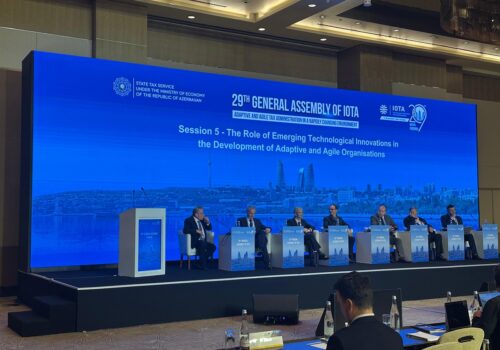The European Association for E-Identity & Security (EEMA) celebrated their birthday within the 30th Annual Conference ‘Privacy vs Identity – Opportunity and Challenges’ devoted to the global issues of confidentiality and e-identity at the Microsoft Offices in London on July 04-05, 2017.
The Conference covered the development of electronic mobile-ID technology and strong authentication, trust services, confidentiality, risk management, cybersecurity, Internet of Things, artificial intelligence and Blockchain technology on the world market as well as new projects for the EU and Global Markets.
Worldwide experts, innovators and key players from the Private and Public sectors participated in the Conference to discuss the most relevant issues in the above-mentioned fields and inform a highly qualified audience on the evolution of secure digital identity upon which future developments will be built.
This conference organized by EEMA and Microsoft and supported by DG CONNECT (European Commission) and ENISA, covered such topics as future trends and technologies, big data and analytics, mobile identity and e-Trust, establishing identity and strong authentication, securing IOT and AI, regulation and legal issues, Blockchain as well as developing projects for the EU and Global Markets. In conjunction with this conference there was an expo floor for demonstration of some solutions within these areas and research projects, where the guests could get acquainted with the industry’s latest advances. Azerbaijan was presented along with such countries as the USA, the UK, Estonia, Germany, Austria, the Netherlands, France, Turkey, Italy and many other representatives of international organizations and industry’s leaders.
The Azerbaijan innovation «Asan İmza» as well as implementation and development results of the Digital Trade Hub as an innovative State Start-up were presented by Mrs. Jana Krimpe, the Head of the Azerbaijani
Company «B.EST Solutions», an “Asan-Imza” Mobile-ID operator. Her presentation «Mobile ID – a secure key to the Digital Trade Hub in Azerbaijan and cross-border e-services» was to inform that «Asan İmza» Mobile-ID provides ubiquitous and secure access to the Public and private e-services and is legally equal to the national identity.
Mrs. Krimpe emphasized that «Asan İmza» enables identifying the person, signing the document electronically, which is equal to handwritten signature according to the Law of Azerbaijan Republic on electronic signature. That makes it a perfect tool to promote e-services. Today «Asan İmza» is used for submitting the electronic tax declarations, registering goods and vehicles in the customs service, registering labour agreement notifications, on-line registration of students etc. «Asan İmza» is also a new revolutionary cross-border project for Islamic countries», – Jana Krimpe stressed.
Besides, Mrs. Krimpe informed the conference delegates about other achievements of innovative Azerbaijan, including «Asan İmza» integration with Azexport.az portal, which was developed by the Center for Analysis of Economic Reforms and Communications of Azerbaijan Republic based on the principle of partnership between the Public and private sectors and branded as «Made in Azerbaijan». Today the portal supports the export of goods made in Azerbaijan and works with such global trade platforms as Alibaba.com, eBay.com, Wholesale and All.biz.
It was mentioned that according to the Decree of the President of the Republic of Azerbaijan Ilham Aliyev, additional measures are taken for widening the international trade and enhancing the Azexport.az portal as a Digital Trade Hub of Azerbaijan. According to this Decree «Asan İmza» will be issued to the foreign citizens in all diplomatic representative offices throughout the world. The m-Residence project for expats who will become «Asan İmza» users was of the participant’s particular interest. The recently launched single AsanDoc.az portal, where any electronic document can be signed by means of the «Asan İmza», provided the convenient and legal communication with Public institutions and Azerbaijani banks as well as made the document circulations between the private companies easier.





